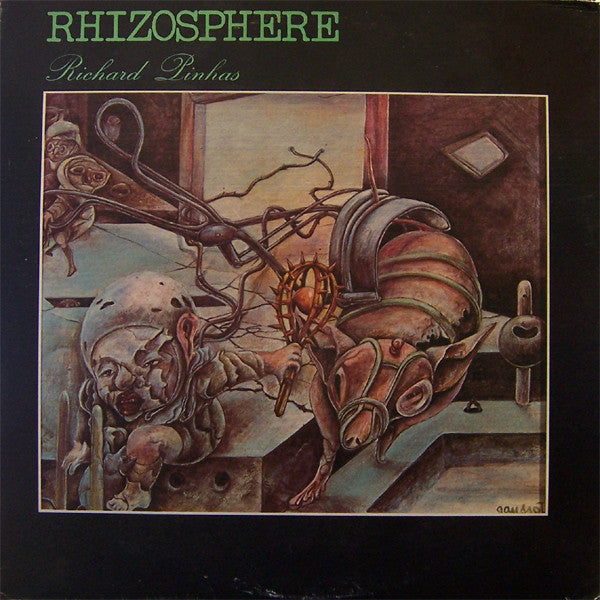PINHAS, RICHARD - Rhizosphere
Couldn't load pickup availability
Bureau B present a reissue of Richard Pinhass Rhizosphere, originally released in 1977. Richard Pinhas is one of the most important French electronic space rock musicians. Following five albums with his band Heldon, he released his first solo record in 1977. Backed by Heldons congenial drummer François Auger but no longer bound by the group dynamic, he explores his freshly purchased Moog modular system in search of new sounds. It marked a departure into new realms. We dont need new technique: everybody has a technique. We need new sounds. Trying to find new sounds is difficult." Finding new sounds is the task Pinhas set for himself on Rhizosphere. Not long before, he had acquired a Moog modular synthesizer, then settled into his home studio and began a committed relationship with his new instrument. Rhizosphere wasnt his first solo recording with the Moog -- Chronolyse was made a year earlier and released in 1978 -- but it was the first to be released. On four of its five tracks, Rhizosphere presents just the 25-year-old Pinhas and his synth alone together, a melding of man and machine that gradually becomes an expansive, outward-bound journey. Pinhass simple approach spawned a galaxy of diverse sounds and ideas. Each track on Rhizosphere inhabits its own mini-universe sonically and emotionally. The range of moods traversed is stunning. The only other human being on Rhizosphere is drummer François Auger, who accompanies Pinhas on the title track. The escalating arc of its 18-minute run plays like a moonbound rocket-trip, with pulsing synth and roaming percussion made all the more otherworldly by the decision to filter Augers cymbals through an AKS modular synthesizer. In science, the word "rhizosphere" means the layer of soil that surrounds and is altered by the roots of a plant. Using it as an album title suggests music as a kind of Möbius strip, creating its own nourishment, feeding off of its own discoveries in order to find more. But for Pinhas the choice was philosophically-inspired: he adopted it from a book about arithmetic by his academic mentor Gilles Deleuze. "Its about no gods, no sentimental things," he explains. "It means everything is the same until an event appears on a planet ... maybe music." Music as an emerging phenomenon, puncturing the surface of whats come before: Richard Pinhas certainly found what he was looking for on Rhizosphere. 2018 remaster by Willem Makkee." - Bureau B.


